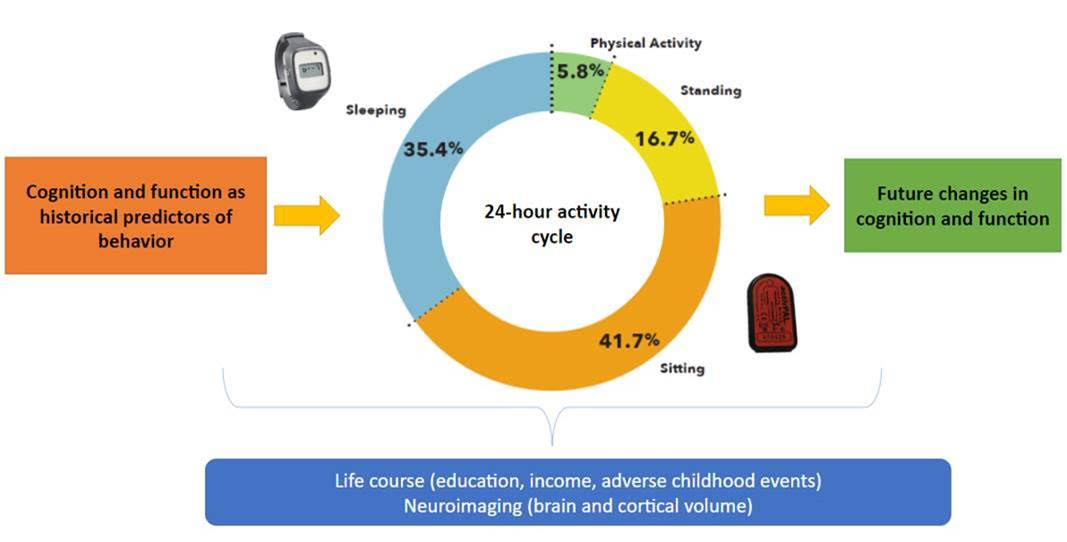Project 1: The ACT Sleep and Activity Monitoring Project
The Adult Changes in Thought (ACT) Sleep and Activity Monitoring Project is using wearable devices to explore possible links between brain health and all behaviors that occur within the 24-hour activity cycle (exercise, sedentary behavior, sleep). Previous research has suggested that good sleep habits and moderate or vigorous exercise can help reduce the risk of cognitive decline. The ACT Study will build on this research and monitor how movement, sitting, and sleeping habits interact to affect people from day to day and over long periods of follow-up time. A unique component of this project is its use of a device, called activPAL, to track everyday activity 24 hours a day on a large scale. The project will also be collecting objective sleep data using a wrist-worn accelerometer sleep watch (Philips Actiwatch Spectrum).
The experienced project team has been collecting accelerometer data on the ACT Study cohort since 2016 with the activPAL and another device called ActiGraph. Going forward, the project will include more study volunteers and new data collected via the sleep watch and will continue collecting activPAL data. Collaboration with ACT Study cores will enable exploration of 24-hour activity cycle data with additional life course, neuropathologic, and imaging data in the future. No other studies include such well-characterized cognitive, physical, and behavioral data across the 24-hour activity cycle.
Ultimately, findings from this project will provide much-needed evidence to inform the guidance and approaches for older adults to get adequate sleep and exercise, which can help promote healthy aging and reduce risk for cognitive decline and late-life dementia.



